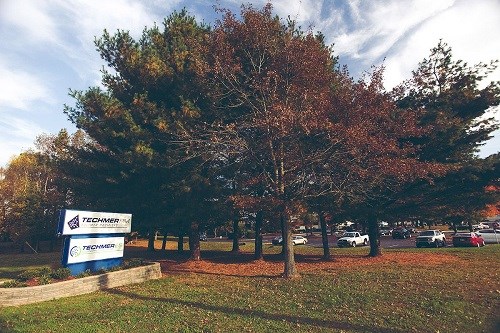Techmer PM's New Partnership Applies DNA Tagging to Fibers
Applied DNA Sciences and Techmer PM collaborate on applying the former's patented SigNature T DAN system to tag polymer-based fiber materials, and more.

Earlier this month, specialty colorants and additives masterbatch supplier Techmer PM, Clinton, Tenn., announced a partnership with Applied DNA Sciences, Inc. (ADPN), Stony Brook, N.Y., a provider of DNA-based anti-counterfeiting technology, supply chain, and product authentication methods—first for fiber applications and then beyond.
Initially, the collaboration is aimed at applying ADPN’s patented SigNature T DNA system to tag, and authenticate polymer-based fiber materials. This application offers consumer and industrial product manufacturers the ability to protect their products by applying SigNature T to masterbatch pellets at the point of origin, and verify products as they move throughout the supply chain. Ultimately say the partners, SigNature T is designed to protect products and brands from counterfeiting, providing forensic evidence, and a trail to the source. It is reportedly safe, and has been shown to perform successfully in fibers and film, among other materials.
I recently asked product development manager Bhushan Deshpande some key questions about the technology and its application in plastics. Here’s what he had to offer:
• Are there potential applications for plastics?
Yes. We believe there would be applications in fiber, film, and injection molded products. Basically, any process where there is a requirement of a tracer…this technology can be an option.
• How does it work?
The plastic part (film, fiber, or molded product) contains a masterbatch from Techmer PM. This masterbatch contains a plant-based DNA unique to Techmer PM and can be further individualized for the end customer. In case of questions on the authenticity of the part, the part can be analyzed for the presence of the unique DNA confirming that the part was indeed produced by the OEM using the masterbatch.
• How does one “read” the DNA signature?
Working with our partner ADPN, the DNA is analyzed in the plastic part via DNA analysis methods—polymerase chain reaction (PCR) and capillary electrophoresis. The key in these test methods is that the exact type of DNA has to be known prior to testing to be able to detect the DNA in the test part. Even if someone has used a different DNA, it will not show up in the test method.
According to James Hayward, president and CEO of ADPN, no other tracer has the forensic fidelity and strength of SigNature T. “Working with Techmer PM, we have successfully tested SigNature T DNA at their technical center. The DNA tagging has been rigorously evaluated, following Techmer’s standards, and is now being actively piloted with customers involved in all stages of the supply chain.”
Related Content
-
Artificial Intelligence Enables Smarter Sourcing
Westfall Technik has adopted Arkestro’s predictive procurement software to wring savings and more reliable deliveries from a historically challenging supply chain.
-
EV Chargers Made From Renewable PC
SABIC is enabling Charge Amps to manufacture electric vehicle (EV) chargers with a housing made from certified renewable PC, a first for the industry.
-
Nexkemia Acquires Polystyrene Recycling Assets
The polystyrene manufacturer finalized its purchase of Eco-Captation, a recycler.














.png;maxWidth=300;quality=90)
